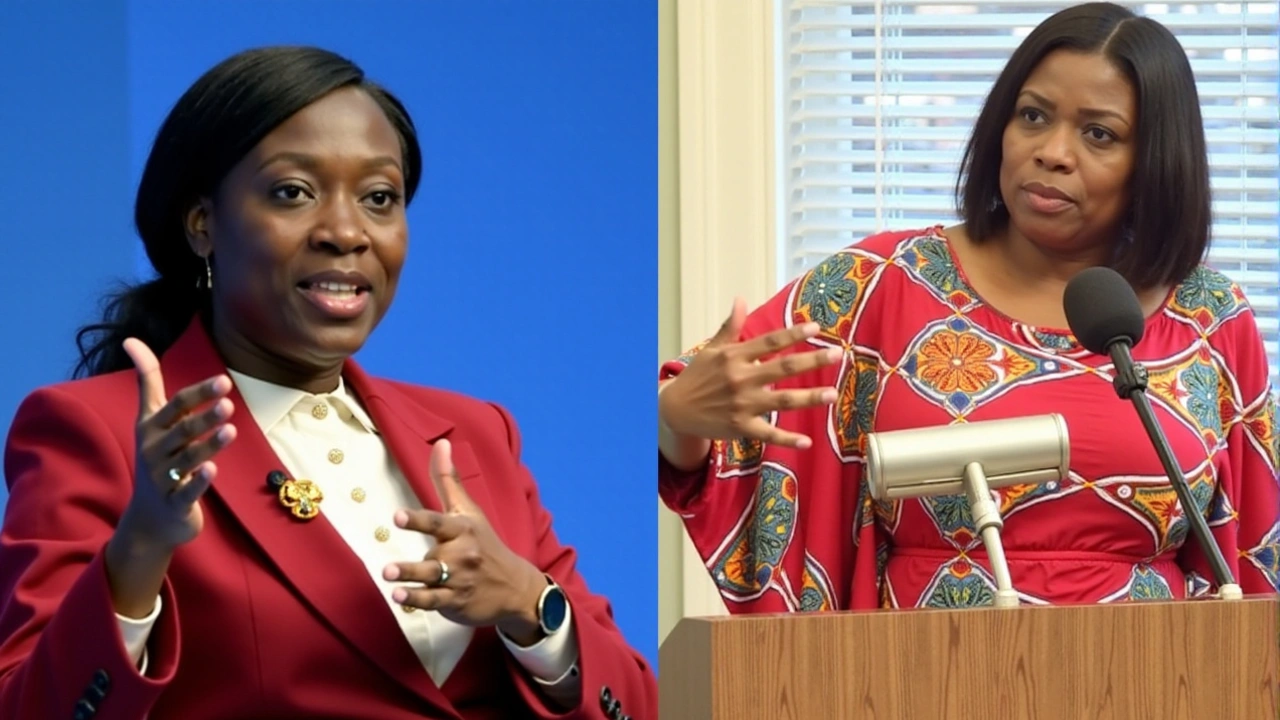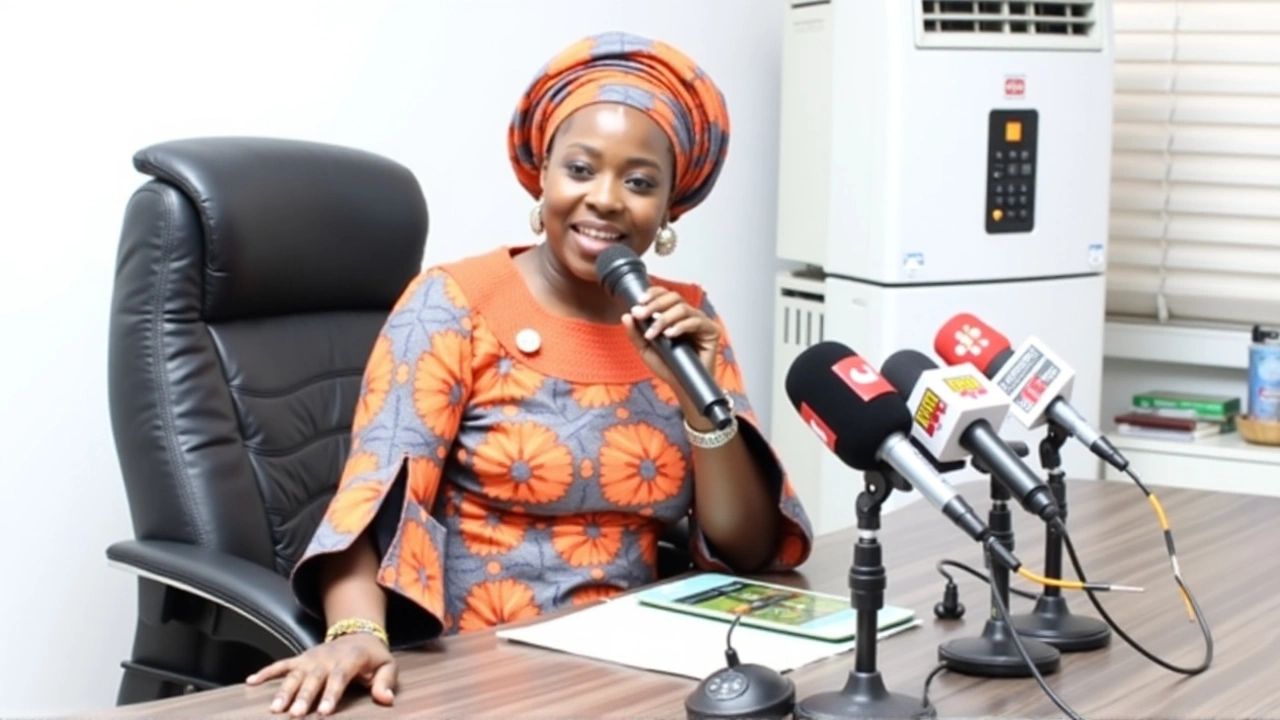Efforts to Connect With Kemi Badenoch Stalled, Says NIDCOM's Abike Dabiri
 Nov, 8 2024
Nov, 8 2024
NIDCOM's Attempts to Reach Kemi Badenoch
Abike Dabiri-Erewa, a prominent and influential figure steering the Nigerians in Diaspora Commission, has openly addressed an unusual situation that has captured the attention of both political analysts and cultural commentators. Dabiri-Erewa, known for her dedicated work in strengthening ties among the global Nigerian community, publicly emphasized the commission's attempts to establish a connection with Kemi Badenoch, the newly selected leader of the UK Conservative Party. In a revelation that speaks volumes about the complexities of identity and affiliation, Dabiri-Erewa shared during an interview with Channels Television’s widely watched program 'The Morning Brief', how efforts to engage Badenoch have so far been futile. The statement offers a glimpse into the ongoing dialogue about national identity, heritage, and the choice to embrace or distance oneself from these roots.
Kemi Badenoch's Political Ascent
Kemi Badenoch's rapid rise within the British political landscape has been marked by ambition, resilience, and, perhaps controversially, a complex relationship with her heritage. Badenoch's election as the leader of the UK Conservative Party, succeeding Rishi Sunak after a tempestuous political season, marks a historic moment as she becomes the first black leader of a UK-wide political party. This victory was not merely a personal achievement but a decisive endorsement from party members, securing 57% of the votes in her favor over her contender, Robert Jenrick. Her leadership marks a significant shift, not only politically but also culturally, as it brings into sharp relief the intersections of race, nationality, and public perception within the UK. Badenoch, born in London but having spent portions of her formative years in Nigeria, presents a case study in the multifaceted narratives of the African diaspora.
Identity and Affiliation
The intricacies of national identity are often navigated with care, and the conversation surrounding Badenoch encapsulates this delicate balance. Dabiri-Erewa's comments underscore a broader sentiment held by many within Nigeria's expansive diaspora community. She eloquently articulated a stance that respects individual choice in identifying with one's roots, stating during her interview, "It depends on if she identifies the Nigerianess in her." Here, Dabiri-Erewa reflected on the commission’s outreach efforts, met thus far with silence, and highlighted that embracing one’s Nigerian identity is a personal decision that the commission respects. This statement stands as a broader metaphor for the challenges and privileges that come with being part of a diasporic identity—one can choose to embrace or distance oneself from their heritage.

Historical Context and Future Dialogues
The conversation around Badenoch's leadership and the Nigerian diaspora's journey extends beyond present circumstances, reaching into the rich tapestry of history and the evolving nature of cultural dynamics. Dabiri-Erewa's mention of Nigeria's willingness to collaborate with those who cherish their Nigerian origins illustrates the country's approach to nurturing relationships with the global Nigerian community. She shared an anecdote of Miss Universe Nigeria, who embraced her Nigerian identity only after encountering challenges in South Africa, demonstrating that moments of difficulty can often inspire a return to one's roots. This aspect of identity negotiation is a recurring theme among the diaspora: one's birthplace can coexist with one’s ancestral connection, forming a tapestry that weaves together varied experiences.
Public Perception of Nigeria
Badenoch’s narrative, during her ascent in British politics, included stories from her childhood in Nigeria that painted a complex picture, sometimes described as candidly critical. Her descriptions became a poignant point of reflection regarding how her Nigerian roots are interpreted and the extent to which they influence her political and personal philosophies. In one of her interviews, she remarked on the fortuity of her birth in the United Kingdom, expressing gratefulness and a fierce loyalty to her country of birth. The narrative she constructed during her campaign resonated with both pride and a contrast from her experiences in Nigeria, suggesting her journey was a driving force in her commitment to the UK's values. These stories and sentiments have sparked discussions about representation, the weight of one's words on international perceptions of heritage, and the responsibilities felt by figures in the public eye.
Embracing Global Nigerian Community
Nigeria has positioned itself as a welcoming nation, open to fostering ties with its diaspora and its descendants, embracing those who choose to affiliate themselves with their ancestral home. Dabiri-Erewa's stance reflects that Nigeria is ready to engage with anyone who identifies with their 'Nigerianess', but she makes it clear that the onus of identifying with one’s heritage lies with the individual. The global Nigerian community continues to be defined by a rich interplay of cultures, values, and identities, as evidenced by the complex relationships between individuals like Badenoch and their ancestral ties. As globalization continues to influence national and individual identities, Nigeria's approach highlights a balance between pride in one's roots and respect for personal decisions about cultural affiliation.